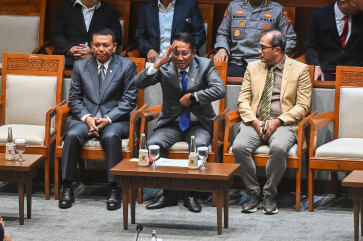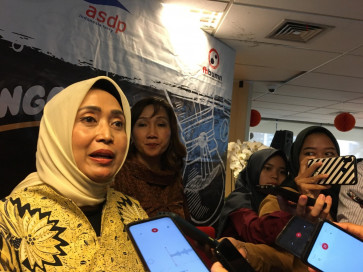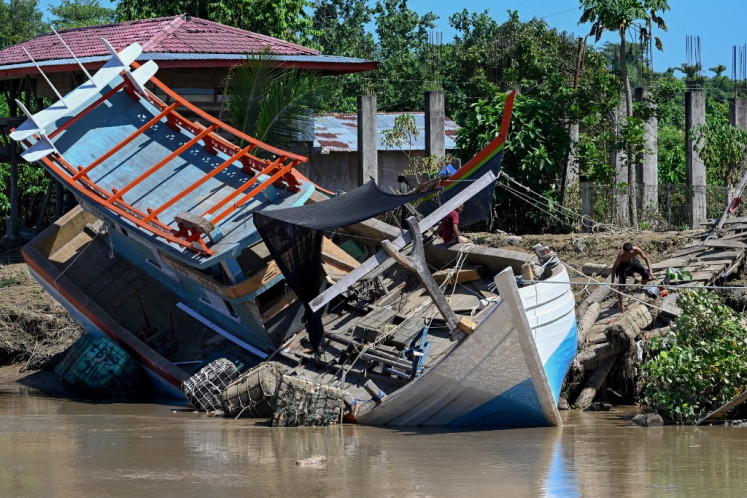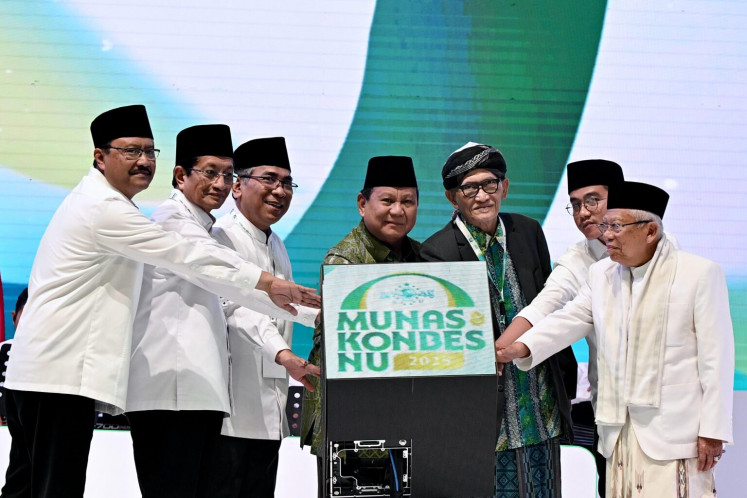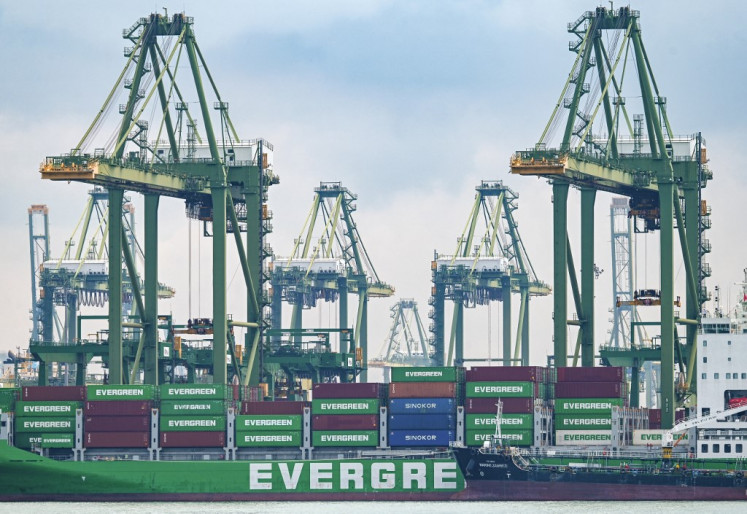Popular Reads
Top Results
Can't find what you're looking for?
View all search resultsPopular Reads
Top Results
Can't find what you're looking for?
View all search resultsRI lays claim to continental shelf -- and rich resources
On June 16, 2008, Indonesia made a submission to the UN Commission on the Limits of the Continental Shelf (CLCS) regarding its claim to continental shelf rights beyond 200 nautical miles of its coast
Change text size
Gift Premium Articles
to Anyone
On June 16, 2008, Indonesia made a submission to the UN Commission on the Limits of the Continental Shelf (CLCS) regarding its claim to continental shelf rights beyond 200 nautical miles of its coast.
This was done in accordance with Article 76 of the UN Conventions on the Law of the Sea (UNCLOS). As part of the submission, a coastal state has to delineate the outer limits of its continental shelf.
The above process is commonly recognized as an "extending maritime claim". However, Indonesia is not extending its maritime area, but confirming its limits beyond 200 miles.
With respect to its continental shelf, a coastal state secures sovereign rights for exploration and exploitation, which "do not depend on occupation, effective or notional, or on any express proclamation" (UNCLOS, Article 77).
Indonesia is the 12th state to submit its Extended Continental Shelf (ECS) claim, the first being the Russian Federation, which submitted one in 2001. The original submission deadline for most states, including Indonesia, was 2004 -- 10 years after UNCLOS's entry into force (Nov. 16, 1994).
Commencement of the 10-year period was subsequently revised, making the new deadline May 13, 2009 -- for those states that ratified UNCLOS before May 13, 1999.
As the new deadline approached, more and more submissions landed on the CLCS's desk. If other states wish to repond to these submissions, executive summaries are available on the CLCS's website.
Following extensive preparation, Indonesia submitted its ECS claim to the UN for the area northwest of Sumatra. As indicated, it was a partial submission, meaning Indonesia plans to make other submissions in the near future.
Two more submissions are anticipated: one for south of Nusa Tenggara and one for the area north of Papua. Indonesia's ESC team is currently preparing the technical and nontechnical aspects of the two submissions, which requires a great deal of effort.
With respect to the submission deadline, the latest meeting of States Parties to UNCLOS (SPLOS) decided that a coastal state may submit "preliminary information indicative of the outer limits of the continental shelf" together with "a description of the status of preparation and intended date of making a submission" (SPLOS/183).
This confirms that a coastal state does not have to provide all supporting data and documents by the deadline (May 13, 2009), but can instead provide a preliminary submission or even an indication of submission. Supporting data and documentation can be provided at a later time. In such a case, the deadline does not change, but submission requirements are made significantly easier.
Indonesia's submission is the first by an Asian state and one of the earliest from a developing nation. It could positively influence other developing nations struggling with the technical and financial difficulties of submitting. Indonesia's effort deserves appreciation and is a sign of hope for developing states.
Indonesia's partial submission relates to an ECS area of 3,915 square kilometers -- roughly the size of Madura Island. In light of the considerable effort and cost involved -- over a 10-year period -- in submitting, we may, legitimately, ask: Was it worth it?
In answering that question, we should remember that Indonesia stands to gain additional seabed where, at present, it can only use natural resources and where it lacks full sovereignty.
Two other issues are worth bearing in mind. First, the technical complexity involved in the preparation of a CLCS submission should be appreciated. Detailed bathymetric and seismic information is required. While a great deal can be achieved through desktop studies, fresh surveys are often required and are not cheap.
In essence, the extent of the potential shelf cannot be determined until the process of preparing a submission is completed, by which time the costs are already incurred.
Second, while direct benefits may be difficult to see at this time, it might be wise to view the ECS as a significant investment in the future. Robert Prescott, an internationally renowned maritime boundary expert, states that "we must take the long view".
At present, we might not know what lies beneath, but we can always hope for something precious in the future.
There are many potential resources within and on the seabed, both living and nonliving. Oil and gas are two such resources to be explored. Moreover, the deep seabed is a unique environment, inhabited by organisms with special characteristics.
Their behavior and life processes could be the subject of potentially useful research. A coastal state can make use of any living and nonliving resources it finds under the seabed's surface.
Furthermore, this is a good opportunity for Indonesia to confirm its sovereign rights, as a ruling based on the CLCS's recommendation will be final and binding. If Indonesia does not assert its rights now, it may lose the opportunity to do so.
In addition, the present submission is only partial. There will be submissions related to two additional areas of continental shelf, the dimensions of which are presently unknown.
In sum, Indonesia's ECS claim is good news for the entire country and, potentially, for developing states in the process of preparing their own submissions.
It also brings hope to Indonesia regarding resources to be harvested in the future. We should not hold our breath, however, as there is still a long way to go before CLCS makes its recommendation. Let us hope for a good result.
The writer is a lecturer in the geodesy and geomatics department at Gadjah Mada University in Yogyakarta. He is currently an Australian Leadership Award Scholar and Ph.D. candidate at the University of Wollongong. This is his personal opinion.



